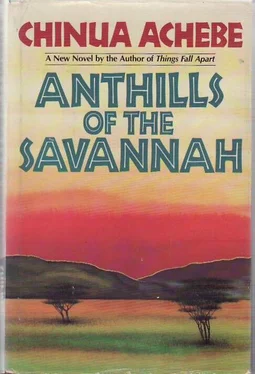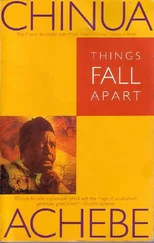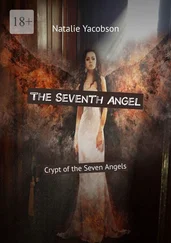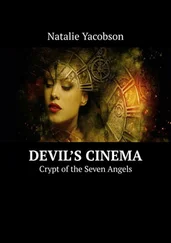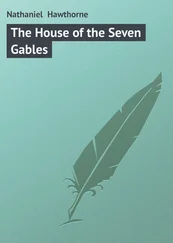Chinua Achebe - Anthills of the Savannah
Здесь есть возможность читать онлайн «Chinua Achebe - Anthills of the Savannah» весь текст электронной книги совершенно бесплатно (целиком полную версию без сокращений). В некоторых случаях можно слушать аудио, скачать через торрент в формате fb2 и присутствует краткое содержание. Жанр: Проза, на английском языке. Описание произведения, (предисловие) а так же отзывы посетителей доступны на портале библиотеки ЛибКат.
- Название:Anthills of the Savannah
- Автор:
- Жанр:
- Год:неизвестен
- ISBN:нет данных
- Рейтинг книги:4 / 5. Голосов: 1
-
Избранное:Добавить в избранное
- Отзывы:
-
Ваша оценка:
- 80
- 1
- 2
- 3
- 4
- 5
Anthills of the Savannah: краткое содержание, описание и аннотация
Предлагаем к чтению аннотацию, описание, краткое содержание или предисловие (зависит от того, что написал сам автор книги «Anthills of the Savannah»). Если вы не нашли необходимую информацию о книге — напишите в комментариях, мы постараемся отыскать её.
Anthills of the Savannah — читать онлайн бесплатно полную книгу (весь текст) целиком
Ниже представлен текст книги, разбитый по страницам. Система сохранения места последней прочитанной страницы, позволяет с удобством читать онлайн бесплатно книгу «Anthills of the Savannah», без необходимости каждый раз заново искать на чём Вы остановились. Поставьте закладку, и сможете в любой момент перейти на страницу, на которой закончили чтение.
Интервал:
Закладка:
'It is also like this (for what is true comes in different robes)… Long before sunrise in the planting or harvesting season; at that time when sleep binds us with a sweetness more than honey itself the bush-fowl will suddenly startle the farmer with her scream: o-o-i! o-o-i! o-o-i! in the stillness and chill of the grassland. I ask you, does the farmer jump up at once with heavy eyes and prepare for the fields or does he scream back to the bush-fowl: Shut up! Who told you the time? You have never hoed a cassava ridge in your life nor planted one seed of millet. No! If he is a farmer who means to prosper he will not challenge the bush-fowl; he will not dispute her battle-cry; he will get up and obey.
'Have you thought about that? I tell you it is the way the Almighty has divided the work of the world. Everyone and his own! The bush-fowl, her work; and the farmer, his.
'To some of us the Owner of the World has apportioned the gift to tell their fellows that the time to get up has finally come. To others He gives the eagerness to rise when they hear the call; to rise with racing blood and put on their garbs of war and go to the boundary of their town to engage the invading enemy boldly in battle. And then there are those others whose part is to wait and when the struggle is ended, to take over and recount its story.
'The sounding of the battle-drum is important; the fierce waging of the war itself is important; and the telling of the story afterwards — each is important in its own way. I tell you there is not one of them we could do without. But if you ask me which of them takes the eagle-feather I will say boldly: the story. Do you hear me? Now, when I was younger, if you had asked me the same question I would have replied without a pause: the battle. But age gives to a man some things with the right hand even as it takes away others with the left. The torrent of an old man's water may no longer smash into the bole of the roadside tree a full stride away as it once did but fall around his feet like a woman's; but in return the eye of his mind is given wing to fly away beyond the familiar sights of the homestead…
'So why do I say that the story is chief among his fellows? The same reason I think that our people sometimes will give the name Nkolika to their daughters — Recalling-Is-Greatest. Why? Because it is only the story can continue beyond the war and the warrior. It is the story that outlives the sound of war-drums and the exploits of brave fighters. It is the story, not the others, that saves our progeny from blundering like blind beggars into the spikes of the cactus fence. The story is our escort; without it, we are blind. Does the blind man own his escort? No, neither do we the story; rather it is the story that owns us and directs us. It is the thing that makes us different from cattle; it is the mark on the face that sets one people apart from their neighbours.'
The footfalls of waiters padding about the cemented courtyard rose to a new prominence in the profound silence.
'So the arrogant fool who sits astride the story as though it were a bowl of foo-foo set before him by his wife understands little about the world. The story will roll him into a ball, dip him in the soup and swallow him first. I tell you he is like the puppy who swings himself around and farts into a blazing fire with the aim to put it out. Can he? No, the story is everlasting… Like fire, when it is not blazing it is smouldering under its own ashes or sleeping and resting inside its flint-house.
'When we are young and without experience we all imagine that the story of the land is easy, that every one of us can get up and tell it. But that is not so. True, we all have our little scraps of tale bubbling in us. But what we tell is like the middle of a mighty boa which a foolish forester mistakes for a tree trunk and settles upon to take his snuff… Yes, we lay into our little tale with wild eyes and a vigorous tongue. Then, one day Agwu comes along and knocks it out of our mouth and our jaw out of shape for our audacity and hands over the story to a man of his choice… Agwu does not call a meeting to choose his seers and diviners and artists; Agwu, the god of healers; Agwu, brother to Madness! But though born from the same womb he and Madness were not created by the same chi . Agwu is the right hand a man extends to his fellows; Madness, the forbidden hand. Madness unleashes and rides his man roughly into the wild savannah. Agwu possesses his own just as securely but has him corralled to serve the compound. Agwu picks his disciple, rings his eye with white chalk and dips his tongue, willing or not, in the brew of prophecy; and right away the man will speak and put head and tail back to the severed trunk of our tale. This miracle-man will amaze us because he may be a fellow of little account, not the bold warrior we all expect nor even the war-drummer. But in his new-found utterance our struggle will stand reincarnated before us. He is the liar who can sit under his thatch and see the moon hanging in the sky outside. Without stirring from his stool he can tell you how commodities are selling in a distant market-place. His chalked eye will see every blow in a battle he never fought. So fully is he owned by the telling that sometimes — especially when he looks around him and finds no age-mate to challenge the claim — he will turn the marks left on him by the chicken-pox and yaws he suffered in childhood into bullet scars… yes, scars from that day our men pounded their men like palm-fruit in the heavy mortar of iroko!'
The tense air was broken suddenly by loud laughter. The old man himself smiled with benign mischief.
'But the lies of those possessed by Agwu are lies that do no harm to anyone. They float on the top of story like the white bubbling at the pot-mouth of new palm-wine. The true juice of the tree lies coiled up inside, waiting to strike…
'I don't know why my tongue is crackling away tonight like a clay-bowl of ukwa seeds toasting over the fire; why I feel like a man who has been helped to lower a heavy load from off his head; and he straightens his neck again and shakes the ache from it. Yes, my children, I feel light-headed like one who has completed all his tasks and is gay and free to go. But I don't want to leave thinking that any of you is being pushed away from his proper work, from the work his creator arranged with him before he set out for the world…'
He stopped speaking. The silence was so complete that one could hear him gnashing his teeth. Ikem realized that other people, habitués of the Harmoney Hotel, drinking their beer at single tables in different parts of the courtyard, had also fallen under this old man's spell and now had their eyes trained on him.
'When we were told two years ago that we should vote for the Big Chief to rule for ever and all kinds of people we had never seen before came running in and out of our villages asking us to say yes I told my people: We have Osodi in Bassa. If he comes home and tells us that we should say yes we will do so because he is there as our eye and ear. I said: if what these strange people are telling us is true, Osodi will come or he will write in his paper and our sons will read it and know that it is true. But he did not come to tell us and he did not write it in his paper. So we knew that cunning had entered that talk.
'There was another thing that showed me there was deception in the talk. The people who were running in and out and telling us to say yes came one day and told us that the Big Chief himself did not want to rule for ever but that he was being forced. Who is forcing him? I asked. The people, they replied. That means us? I asked, and their eyes shifted from side to side. And I knew finally that cunning had entered the matter. And I thanked them and they left. I called my people and said to them: The Big Chief doesn't want to rule for ever because he is sensible. Even when a man marries a woman he does not marry her for ever. One day one of them will die and the marriage will end. So my people and I said No.'
Читать дальшеИнтервал:
Закладка:
Похожие книги на «Anthills of the Savannah»
Представляем Вашему вниманию похожие книги на «Anthills of the Savannah» списком для выбора. Мы отобрали схожую по названию и смыслу литературу в надежде предоставить читателям больше вариантов отыскать новые, интересные, ещё непрочитанные произведения.
Обсуждение, отзывы о книге «Anthills of the Savannah» и просто собственные мнения читателей. Оставьте ваши комментарии, напишите, что Вы думаете о произведении, его смысле или главных героях. Укажите что конкретно понравилось, а что нет, и почему Вы так считаете.
